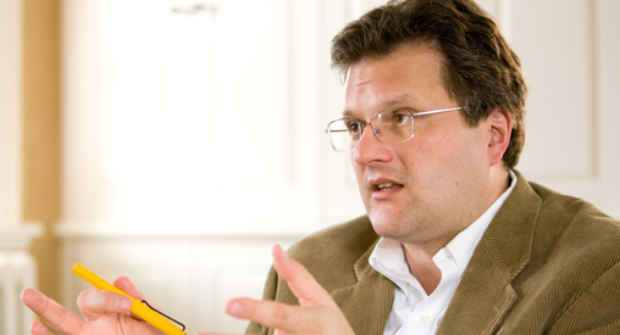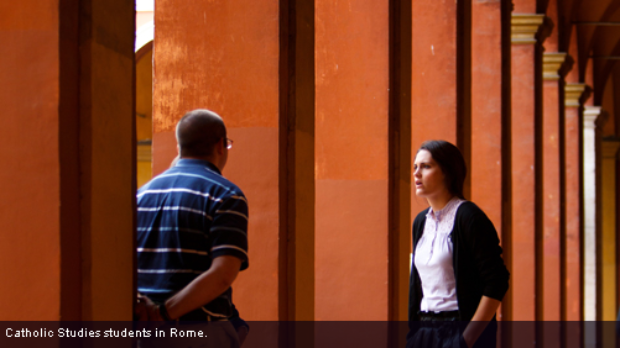In 2001, St. Thomas was one of a number of colleges and universities that received a grant from the Lilly Endowment to stimulate a theological exploration of vocation on campus. The objective of the grant was not only to encourage students to explore personal vocation to the priesthood and religious life but also to prompt them to think about their education and career plans in light of faith.Beyond Career to Calling, as the grant was named at St. Thomas, had three themes: promoting vocations to the priesthood and religious life; promoting vocation in a larger sense, in which the major choices students make about their lives may be seen as a response to God’s call; and promoting the vocation of the University of St. Thomas itself in living out its Catholic mission in all aspects of the community.
Beyond Career to Calling funded many programs and projects that served to promote these themes. Among these was The Church and the Biomedical Revolution lecture and seminar series, which began in 2008. The premise of the series was that traditional Christianity has been and remains an invaluable repository of wisdom. Accordingly, the overarching aim of the series was to engage the question of the nature and shape of the Church’s contribution to the public/global debate occasioned by the biomedical revolution, which comprises questions of law, policy and morality, as well as philosophy, and, ultimately, theology.The series began with an examination of questions concerning the Church’s role in public policy debates touching on biomedical issues. It continued with a study of the “augmentation” of “old powers,” specifically with our increasing ability to prolong life, and a consideration of “new powers,” such as genetic enhancement and nanotechnologies, on which relatively little explicit Church teaching exists.
The final event in the series was held in July 2009. This weeklong seminar was devoted to a discussion of end-of-life decision making in the Catholic tradition. It was led by Chris Tollefsen, Ph.D., a Catholic philosopher at the University of South Carolina who specializes in biomedical ethics and who has edited an important volume on the much-debated topic of nutrition and hydration (Artificial Nutrition and Hydration: The New Catholic Debate, Springer, 2007).Participants in the seminar included faculty from the University of St. Thomas philosophy, theology and Catholic Studies departments, members of the St. Paul and Minneapolis Archdiocesan Biomedical Ethics Commission, the Minnesota Catholic Conference, the Catholic Health Association of Minnesota and the Twin Cities medical community.Discussion during the week ranged from the substance of Church teaching on the ethics of withdrawing or forgoing life-prolonging medical treatment, to the meaning and coherence of the principles that have guided such decision making, to the dignity of the human person underlying those principles, and finally, to the contested application of those principles to the cases of individuals, such as Terry Schiavo, dependent on medically assisted nutrition and hydration.In keeping with the aim of the series, Tollefsen helped the seminar participants better appreciate how the Catholic vision of the human person avoids both a “technologism” that would seek to extend life at any cost and a fatalism that would deliberately seek death when a cure is no longer possible. The series has ended, but people can visit its website: www.stthomas.edu/cathstudies/programs/biomedrevolution.
Read more from Perspectives







